How to Empower Women Through Food Opportunities
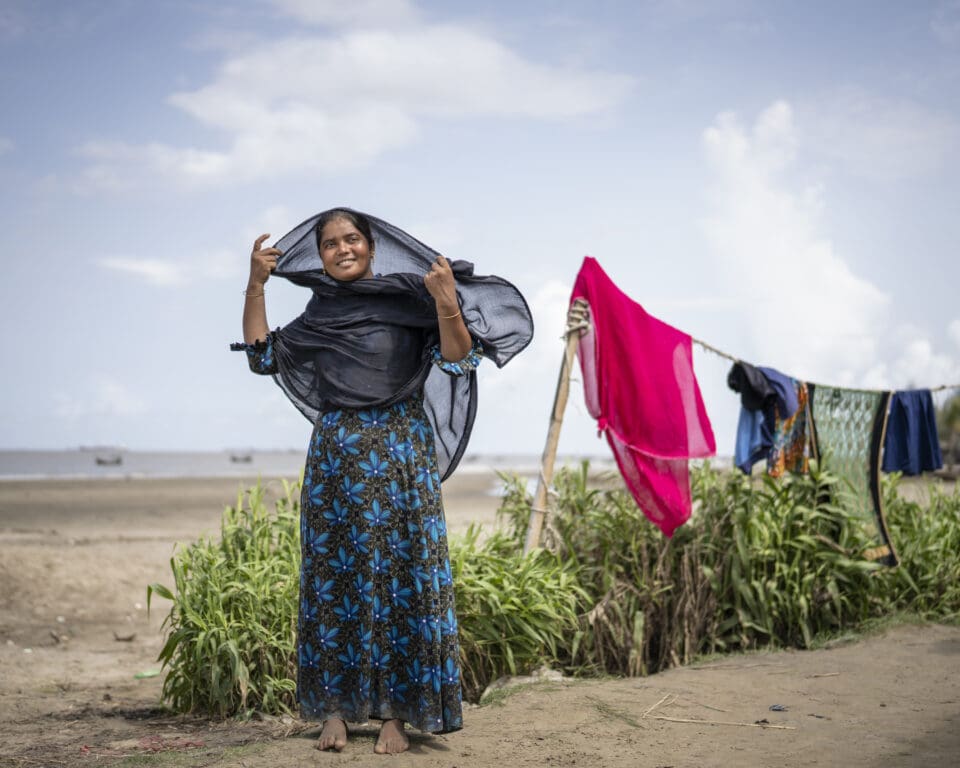
It is essential for women to have equal access to financial resources and food in order to build a world without hunger. Right now, women and girls account for 60% of the 345 million people worldwide facing severe hunger. For Women’s History Month, we’re taking a look at this gender gap and how the United Nations World Food Programme (WFP) works to close it.
At the current rate of progress, it’ll take 300 years for the world to fully reach gender equality. Until then, women will continue to be disproportionally impacted by the global hunger crisis:
- In countries experiencing conflict and hunger, women often eat last and least.
- While more than half of the world’s agricultural workers are women, only 13% actually own the land they farm. When women do own land, their harvests are 20-30% lower than men’s. This difference is not from lack of skill but because in most cases women do not have equal access to loans and tools.
- Certain structural and cultural inequalities disempower women. For example, on average, women have only three-quarters of the legal protections given to men.
Each year, over the half the people the U.N. World Food Programme serves are women and girls. Through emergency food assistance and resilience-building projects, the U.N. World Food Programme equips women with the food, tools and training they need to survive extreme hunger and withstand future upheaval.
School Meals Empower and Nourish Young Girls
In countries like Yemen, daily school meals help keep children like Ferdous fed and focused on their studies. Ferdous and her family have fled their homes multiple times due to the war in Yemen. Today, she is safe and settled in Mokha where she attends a U.N. World Food Programme-supported school. Every morning, Ferdous volunteers to distribute our fortified snacks to her fellow classmates. And every day, Ferdous dreams of becoming a doctor, a dream that is closer to becoming a reality thanks to nutrition and education she can depend on.
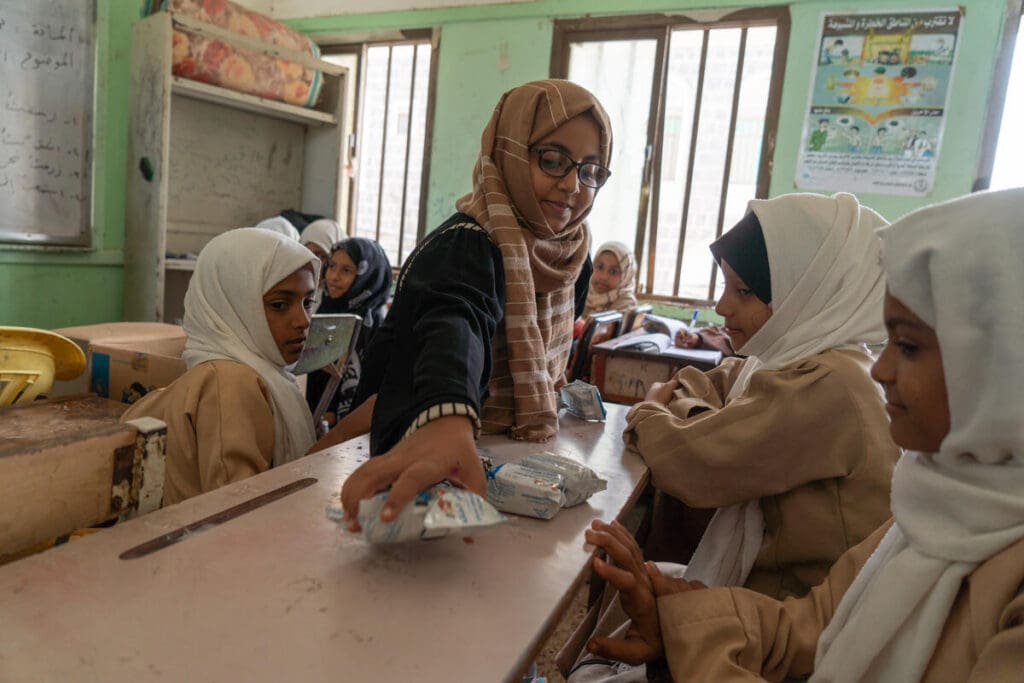
Fardous distributing WFP High Energy Biscuits (HEBs) to the students in her school.
“If I study, I will become a doctor and treat people from my family and others,” Ferdous said. “If a girl works, she will serve her homeland, family and everyone. She will work for them.”
Globally, girls are less likely than boys to attend school due to factors like poverty, cultural and societal norms, child marriage and gender-based violence. School meals help families overcome these challenges:
- With the cost of a daily meal covered, parents can reroute that money to other pressing needs like housing and healthcare. These savings add up and help reduce poverty.
- Girls are kept in the classroom rather than helping around the house or married at a young age.
- With daily, nutritious meals, girls can focus on their studies and learn the skills they need to succeed in life.
The U.N. World Food Programme is the world’s largest provider of school meals, feeding over 15 million children every year. Learn more about our school meals program.
Cash and Food Vouchers Boost Women’s Purchasing Power
In some crisis zones, markets are still functioning and food is available, it’s simply unaffordable for those caught in extreme poverty. When this happens, we provide cash-based assistance in the form of cash, food vouchers, debit cards or e-cards. This type of aid empowers women like Anastasia – who are often the sole provider and decision-maker for their families – to buy what they need.
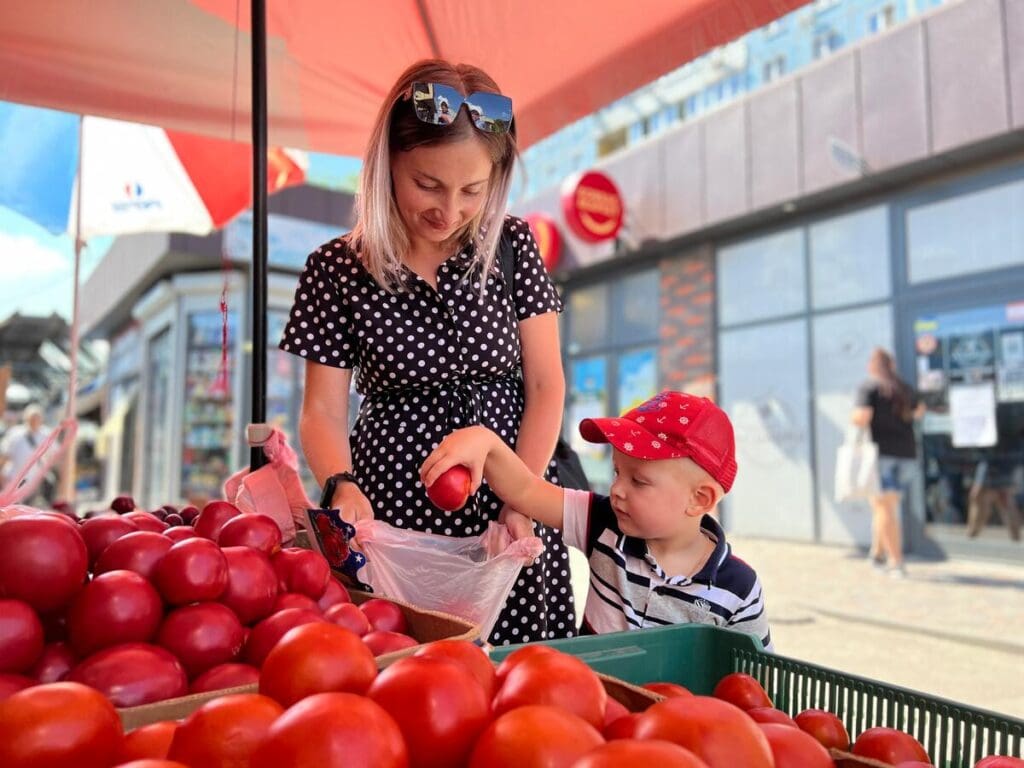
Anastasiia and her family rely entirely on humanitarian assistance from WFP. WFP’s multi-purpose cash programme is one way to give displaced people the capacity and dignity to purchase the most essential items they need, at a given point in time.
Anastasia is a primary school teacher in Ukraine who had to flee the day after the war began. As she packed her bags to leave, she felt that her life was – in her words – “completely ruined.” Today, she and her family have hope for the future thanks to our cash-based assistance to cover their food and transportation needs.
U.N. World Food Programme cash assistance equips women with the means to purchase essential items like food, medicine and hygiene items. Learn more about our food vouchers and cash assistance programs.
Tools, Land and Leadership Opportunities Transform Female Farmers’ Small Businesses
With the right resources and opportunities, women can build and sustain their own businesses.
Through the U.N. World Food Programme’s Food for Assets (FFA) program, small-scale farmers gain access to tools, land and training they need to grow food and earn an income. Female farmers like Alilia are also equally involved in decision-making and planning processes to manage FFA projects.
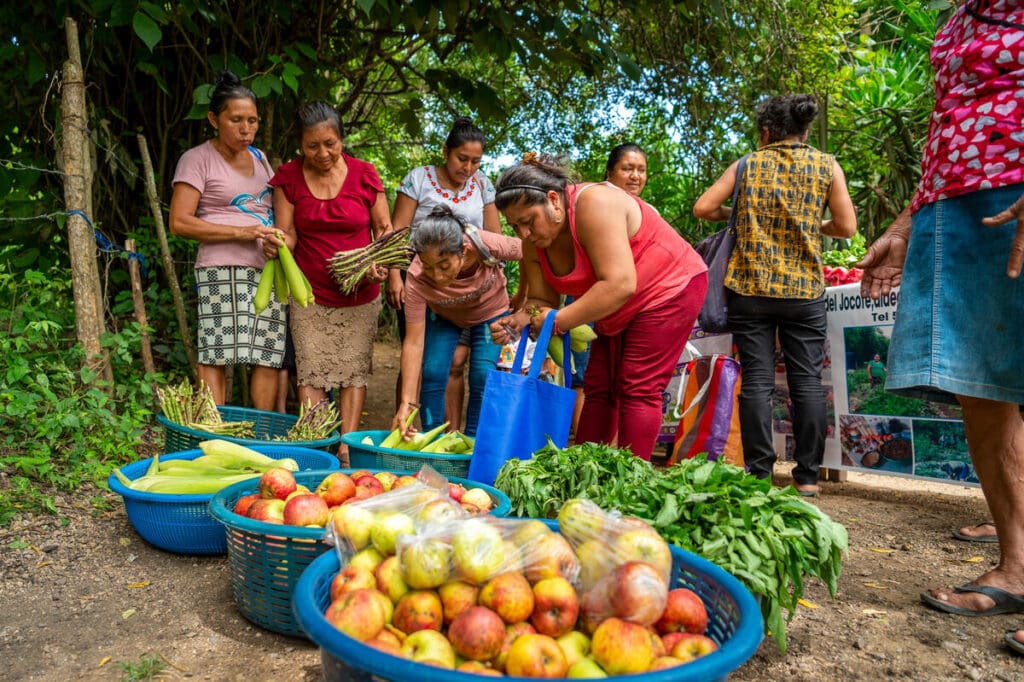
With WFP’s help, women of this community have transformed their land into hope and opportunity for families here. They’re growing drought-resistant crops, making organic pesticides and are now prepared for the dry season.
Alilia, a widow with 15 children, lives in a region of Central America known as the Dry Corridor for its prolonged dry spells. Without water, Alilia’s crops fail and she is unable to provide for her family. The U.N. World Food Programme helped Alilia’s farming group to build a water reservoir, grow drought-resistant crops and make organic pesticides. Through these solutions, they’ve diversified their crops and created an additional source of income by selling the surplus. With the support of the U.N. World Food Programme, this all-female entrepreneurial farming group transformed their land into hope and opportunity for families there.
The U.N. World Food Programme supports small-scale farmers all over the world. Learn more about our work with farmers and business owners.
Women in Tech Innovate for a Zero Hunger World
The U.N. World Food Programme’s Innovation Accelerator provides resources for entrepreneurs and startups to build a zero hunger world. One Innovation Accelerator program – powered by an all-female team – created a successful project called EMPACT.
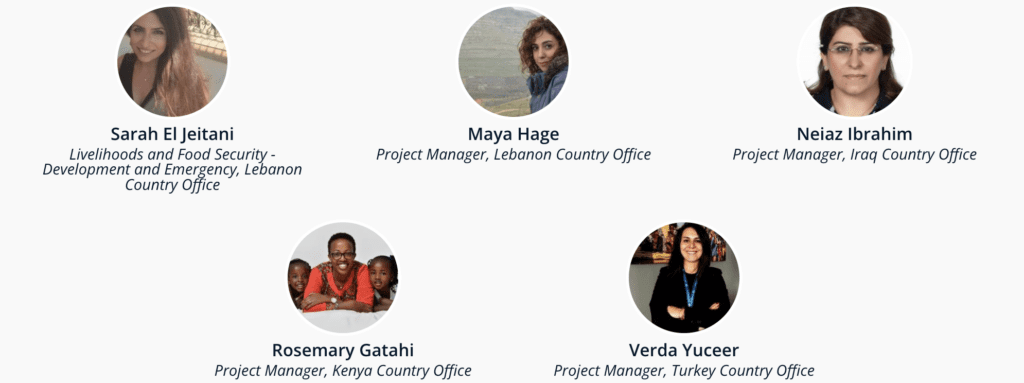
EMPACT Team at WFP Innovation Accelerator.
EMPACT provides young people experiencing hunger with training for in-demand tech skills. With these skills plus access to the internet and a device like a phone or a laptop, young men and women have the potential to transform their lives. EMPACT also promotes gender equality and inclusion, with 52% of its students being women.
Learn more about the Innovation Accelerator and its cutting-edge solutions to world hunger.
Catherine Bertini Trust Fund Supports Girls’ Education and Development
Female leaders can bring significant change to their communities for generations.
After winning the World Food Prize in 2003, Catherine Bertini, the former executive director for the U.N. World Food Programme, saw an opportunity to leave a legacy for women’s empowerment.
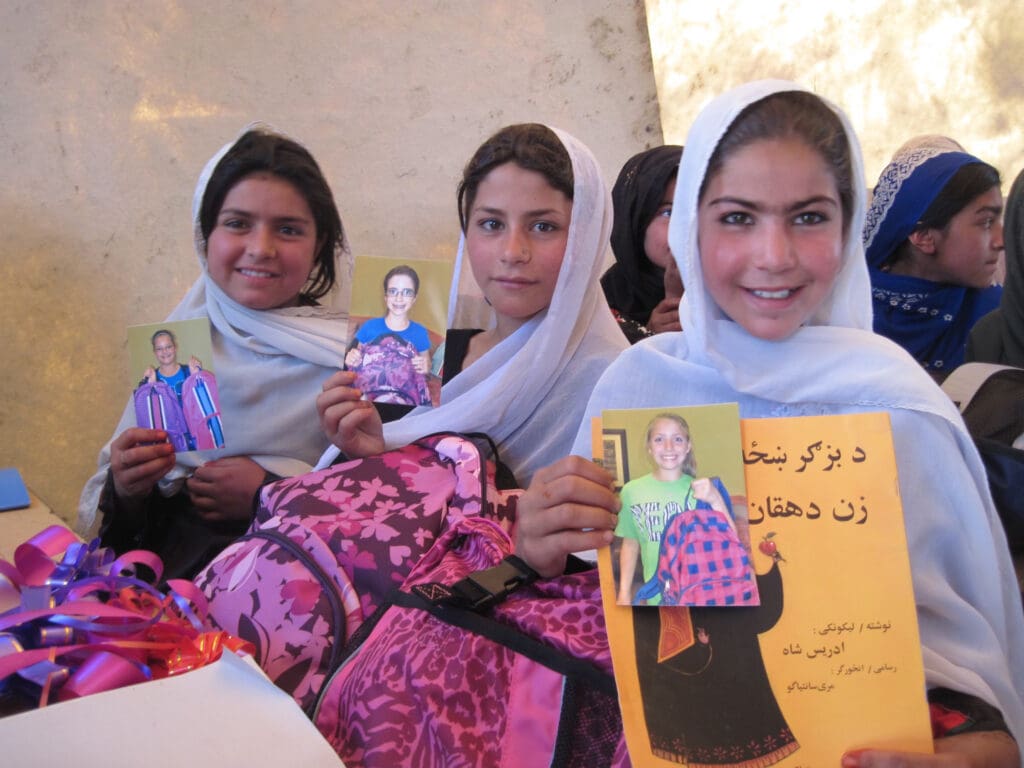
Girls at the Lamia Afghan Foundation, one of the award recipients of the Catherine Bertini Trust Fund.
Twice a year, the Catherine Bertini Trust Fund for Girls’ Education provides a grant to grassroots organizations that connect young girls to schools and vocational training. Recent grant-recipients include the Lamia Afghan Foundation in Afghanistan and the Galkayo Educational Centre for Peace and Development in Somalia.
Read more about the latest grantees of Catherine Bertini Trust Fund.
Women Leading in Humanitarian Work at WFP
Women are essential for humanitarian work and are proven to be more effective leaders in crisis situations.
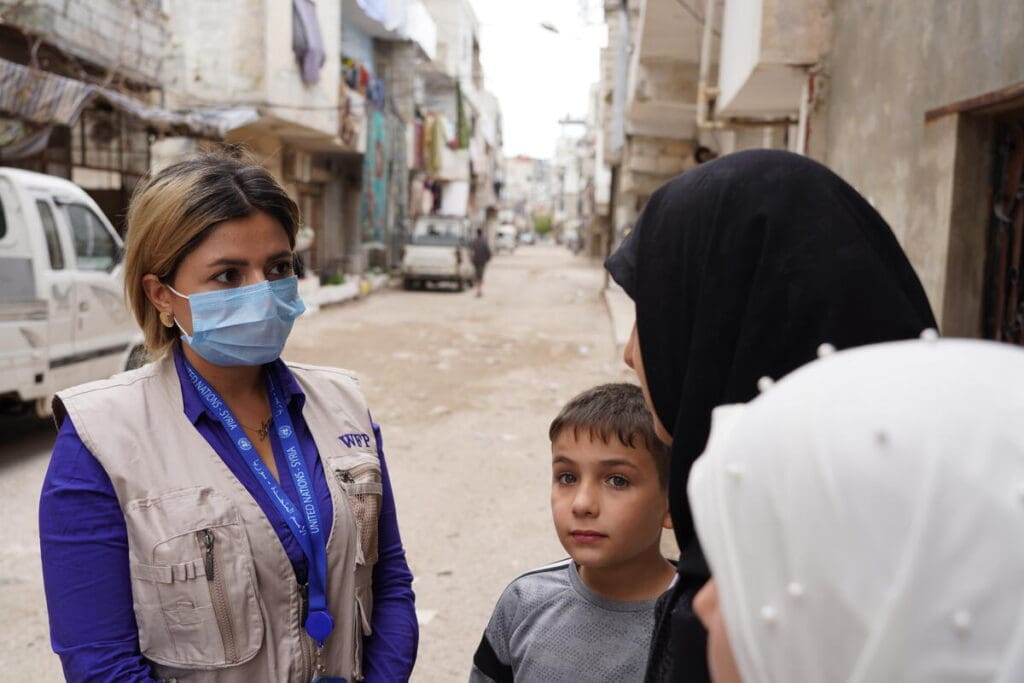
WFP Tartous Field monitor Azza Hasan while conducting field visits.
One such leader is U.N. World Food Programme Field Monitor Azza Hasan in Tartous, Syria. Azza experienced first-hand the devastating impacts of her country’s conflict:
“Being forced to leave home, I know how hard and difficult the situation can be. I wanted to play a positive role and help people in need.” Azza says she treats everyone with dignity and respect “because we are all humans.” She is proud of how her work with the U.N. World Food Programme has empowered other women to lead their communities.
“One of the women we assisted told me the U.N. World Food Programme has changed her life. The woman learned about marketing and project management. Now, she advises other women to develop ideas that can generate an income. This made me feel very proud to see the U.N. World Food Programme is changing lives.”
The U.N. World Programme would not make the global impact it does without the courage, compassion and leadership of its female humanitarian staff.
The U.N. World Food Programme is the world’s leading humanitarian organization. Learn more about our logistics reach across 120 countries and territories.
By providing women with equitable access to food, resources, decision-making and leadership opportunities, we can end gender inequality.
Learn more about how gender inequality drives hunger.




